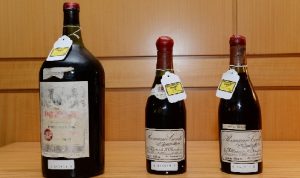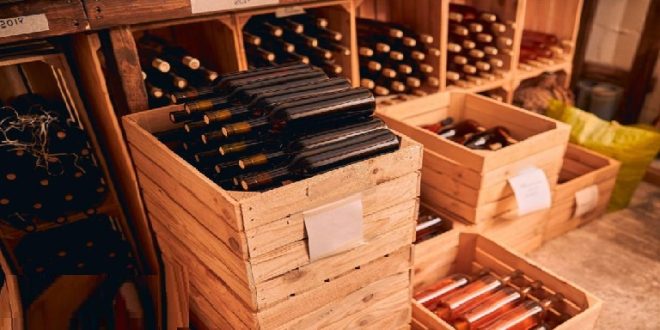17-10-2024
PARIS/ ROME: French and Italian police say they have broken up an international fraud ring that was passing poor quality bottles of wine off as vintages worth up to €15,000 (£12,500) each.
Six people including a Russian national who is the suspected ringleader have been arrested in Paris, Turin and Milan.
 They are alleged to have fabricated fake labels representing famous French vineyards, which were then sold at full market value through wine traders around the world.
They are alleged to have fabricated fake labels representing famous French vineyards, which were then sold at full market value through wine traders around the world.
The group earned €2m from the fraud, French prosecutors said.
A French national has been charged with organized fraud and money laundering.
The suspected ringleader, a 40-year-old Russian national, would also be charged, prosecutors said.
In a press release, Europol said items recovered during seizures included a “large amount of wine bottles from different counterfeited Grand Cru domains, wine stickers and wax products, ingredients to refill wine, technical machines to recap bottles, luxurious goods”, as well as electronic equipment valued at 1.4m euros and over 100,000 euros in cash.
Wine fraud has existed since wine was invented.
Until a few years ago, in France, it was at a fairly manageable level, a few dedicated experts counterfeiting labels and wax seals in order to pass basic wine off as something fancier but over the last decade, things have changed.
The prices fetched by the best grand crus on the world market are now so high thousands of pounds a bottle that it has become profitable to conduct the fraud in a much more organised way.
The centre of this kind of fraud is said to be Italy. That is because they have the wine know-how there: artisans who understand labelling and old bottles and corks; and also a criminal underworld that is prepared to invest.
Today, one wine auctioneer told me, the counterfeiting of old bottles and labels is so skilful that even the vineyards themselves are often unable to spot a fake.
And with some buyers then storing the wine for years, they may never find out it is a fake.
 With international buyers, especially in China, willing to spend £20,000 or more on a top-quality bottle, the criminal temptation to create the perfect bottle then fill it with rubbish – is for some too big to resist.
With international buyers, especially in China, willing to spend £20,000 or more on a top-quality bottle, the criminal temptation to create the perfect bottle then fill it with rubbish – is for some too big to resist.
Last month, French police say they have broken up a scam in which fake bottles of a top French wine were sold.
They say the fraudsters netted up to 2m euros ($2.75m; £1.7m) from the scheme.
Bottles of poor-quality wine were allegedly relabelled as Romanee-Conti, a Burgundy that is one of the world’s finest and most expensive wines.
Two Italian wine merchants have been arrested. They are suspected of selling 400 fake bottles – though it is feared many more may be on the market.
French prosecutors say counterfeit labels were treated with wax to make them look older, and the result was so good that the bottles were near-perfect copies of the real thing.
French police started an investigation after the vineyard said it had become aware of inferior copies being sold. Their investigation reached six European countries, including Britain and Italy. France has requested the extradition of the two Italians, a father and son arrested in their home country. Several others have been arrested or questioned. Dijon prosecutor Marie-Christine Tarrare said; “other suspects are being sought so that we can present this entire counterfeiting network in evidence.” (Int’l Monitoring Desk)
 Pressmediaofindia
Pressmediaofindia




